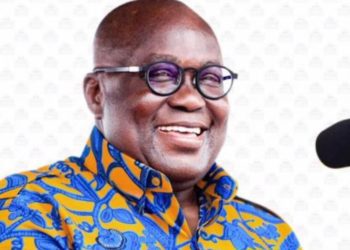Governor of the Bank of Ghana (BoG), Dr Ernest Addison, has called on Parliament to as a matter of priority, pass the three revenue bills that are currently before the House to guarantee ongoing efforts aimed at restoring economic stability and growth.
The governor made the call in a Monetary Policy Committee (MPC) press release dated Monday 27 March 2023. He noted that after its 111th Monetary Policy Committee (MPC) meetings which took place last week, the Committee deliberated on recent macroeconomic developments and assessed the current state of the economy and risks to inflation and growth outlook.
According to Dr Addison, the passage of the relevant revenue bills will conclude the required prior actions agreed upon in the Staff-Level agreement to advance Ghana’s $3 billion program to the IMF Executive Board for the country to ease its current economic difficulties.
Cumulatively, the three revenue bills once passed, are expected to generate about GHc 4 billion annually.
To this end, the MPC press release noted that “on fiscal policy, the Committee noted that the budget statement for 2023 has set fiscal policy on a consolidation path which is consistent with key elements agreed with the IMF at the Staff Level in December 2022”.
MPC’s call
According to the MPC statement, “the domestic debt exchange, new revenue measures, and structural fiscal reforms” embarked on by the government, “will provide significant reduction of debt service and help create fiscal space”.
“The fiscal outlook is contingent on the financing of the budget and will require the conclusion of the domestic debt exchange program as well as securing the requisite financing assurances from bilateral donors. Indications are that these discussions are proceeding well”.
“Based on the above, it is imperative that Parliament prioritizes the passage of the revenue bills currently before it. Under the Staff Level Agreement with the IMF, the Bank of Ghana and the Ministry of Finance have finalized a Memorandum of Understanding on zero financing to the budget, which will be signed shortly” the MPC press release signed by Dr Addison read.
“The passage of the relevant revenue bills by Parliament will therefore conclude the required prior actions to advance Ghana’s program to the IMF Executive Board. This will be critical in resetting the economy on the path of recovery, including putting it firmly on a disinflation path and sustained growth” the release further stated.
Urgent parliamentary business
Parliament from today Wednesday 29 to Friday 31 March 2023, has a make-or-break decision to take on the three key revenue bills which must be passed to indicate Ghana’s seriousness and doing better than being below the continental average on revenue mobilization.
The three revenue bills are the Income Tax (Amendment) Bill, the Excise Duty & Excise Tax Stamp (Amendment) Bill, and the Growth and Sustainability Levy Bill.
The nation’s fate after the successful implementation of the Domestic Debt Exchange Programme is also now heavily dependent on the 275 members of Parliament who meet to vote on the three revenue bills.
Members of Parliament from the National Democratic Congress caucus have been directed by the NDC secretariat to vote against the three bills.
The Minority Leader, Cassiel Ato Forson last week suggested that the seeming delay in agreeing on a debt restructuring deal with China is what could kill the IMF deal. He made no mention of the three bills.
External engagement
Whiles China accounts for 34% of Ghana’s total bilateral debts of US$5bn, bilateral debts overall account for less than 10% of Ghana’s total indebtedness.
Additionally, the Chinese Minister of Finance, Liu Kun, has expressed his country’s willingness to support Ghana to resolve the current short-term liquidity challenges.
China he says “will continue to support Ghana’s medium and long-term developmental aspirations because it believes in promoting debt sustainability and sustainable development”.
Liu Kun gave the assurance when the Minister of Finance, Ken Ofori-Atta, led a high-level delegation from the ministry to China to engage in bilateral talks with his Chinese counterpart and other Chinese officials.
The discussions bordered on recent macroeconomic developments in Ghana and the subsequent application for support from the International Monetary Fund (IMF) as well as the G20 Common framework.
The Chinese finance minister’s assurances followed submissions by Ofori-Atta explaining the rationale for the visit for bilateral discussions around Ghana’s debt position with China.




















